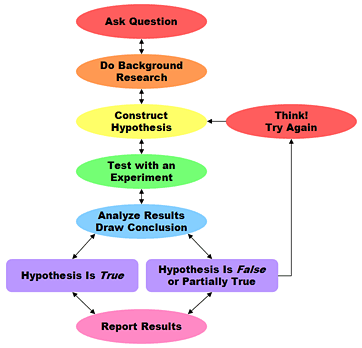Scientific method
- Ask question
- Do background research
- Construct hypothesis
- Test with an experiment
- Analyze results and draw conclusion
- If hypothesis is true, report results
- If hypothesis is false, report results.
- Think and try again
- Go to Construct hypothesis

Image extracted from http://www.sciencebuddies.org/science-fair-projects/project_scientific_method.shtml#overviewofthescientificmethod
Replication crisis
Replication has been referred to as "the cornerstone of science".[81][82] Replication studies attempt to evaluate whether published results reflect true findings or false positives. The integrity of scientific findings and reproducibility of research are important as they form the knowledge foundation on which future studies are built.
Placebo controlled study
Placebo-controlled studies are a way of testing a medical therapy in which, in addition to a group of subjects that receives the treatment to be evaluated, a separate control group receives a sham "placebo" treatment which is specifically designed to have no real effect. Placebos are most commonly used in blinded trials, where subjects do not know whether they are receiving real or placebo treatment. Thus, the relevant question when assessing a treatment is not "does the treatment work?" but "does the treatment work better than a placebo treatment, or no treatment at all?" Therefore, the use of placebos is a standard control component of most clinical trials, which attempt to make some sort of quantitative assessment of the efficacy of medicinal drugs or treatments. Government regulatory agencies approve new drugs only after tests establish not only that patients respond to them, but also that their effect is greater than that of a placebo (by way of affecting more patients, by affecting responders more strongly, or both).
